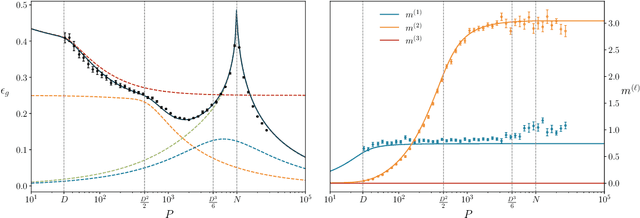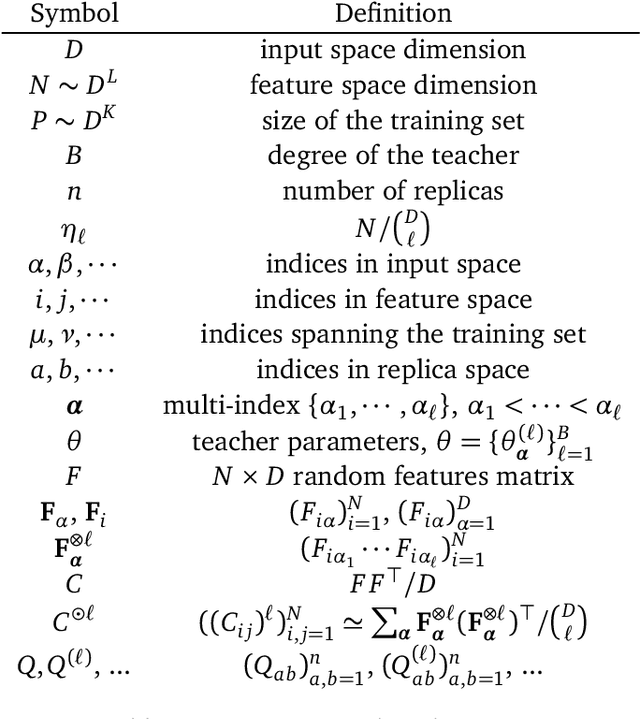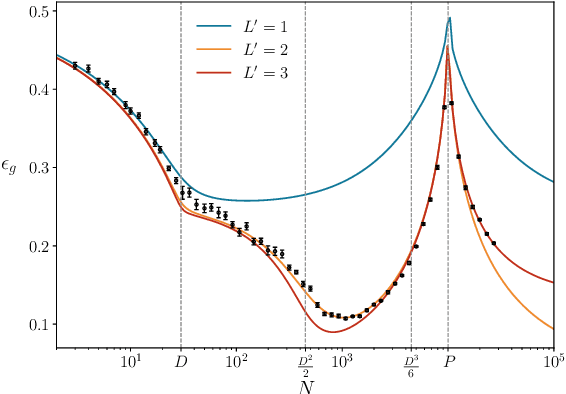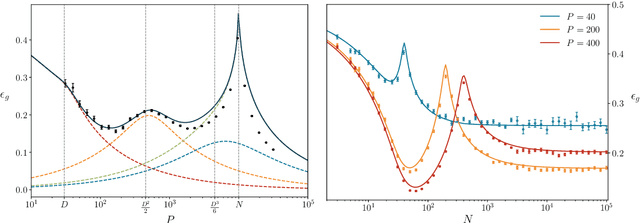Silvio Franz
Random features and polynomial rules
Feb 15, 2024



Abstract:Random features models play a distinguished role in the theory of deep learning, describing the behavior of neural networks close to their infinite-width limit. In this work, we present a thorough analysis of the generalization performance of random features models for generic supervised learning problems with Gaussian data. Our approach, built with tools from the statistical mechanics of disordered systems, maps the random features model to an equivalent polynomial model, and allows us to plot average generalization curves as functions of the two main control parameters of the problem: the number of random features $N$ and the size $P$ of the training set, both assumed to scale as powers in the input dimension $D$. Our results extend the case of proportional scaling between $N$, $P$ and $D$. They are in accordance with rigorous bounds known for certain particular learning tasks and are in quantitative agreement with numerical experiments performed over many order of magnitudes of $N$ and $P$. We find good agreement also far from the asymptotic limits where $D\to \infty$ and at least one between $P/D^K$, $N/D^L$ remains finite.
On the glassy nature of the hard phase in inference problems
May 28, 2018


Abstract:An algorithmically hard phase was described in a range of inference problems: even if the signal can be reconstructed with a small error from an information theoretic point of view, known algorithms fail unless the noise-to-signal ratio is sufficiently small. This hard phase is typically understood as a metastable branch of the dynamical evolution of message passing algorithms. In this work we study the metastable branch for a prototypical inference problem, the low-rank matrix factorization, that presents a hard phase. We show that for noise-to-signal ratios that are below the information theoretic threshold, the posterior measure is composed of an exponential number of metastable glassy states and we compute their entropy, called the complexity. We show that this glassiness extends even slightly below the algorithmic threshold below which the well-known approximate message passing (AMP) algorithm is able to closely reconstruct the signal. Counter-intuitively, we find that the performance of the AMP algorithm is not improved by taking into account the glassy nature of the hard phase.
 Add to Chrome
Add to Chrome Add to Firefox
Add to Firefox Add to Edge
Add to Edge